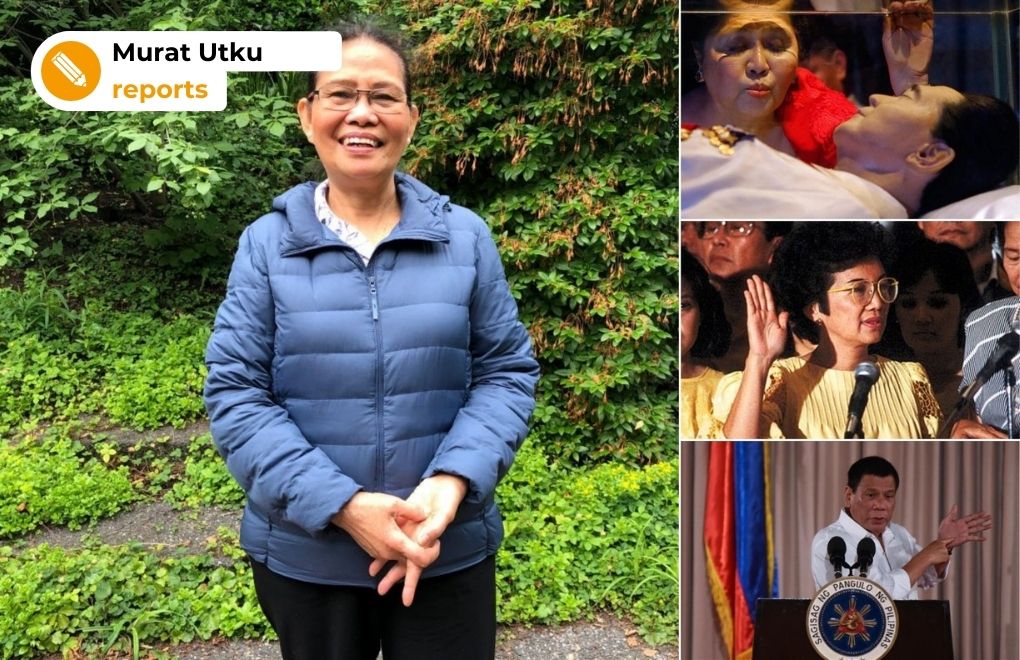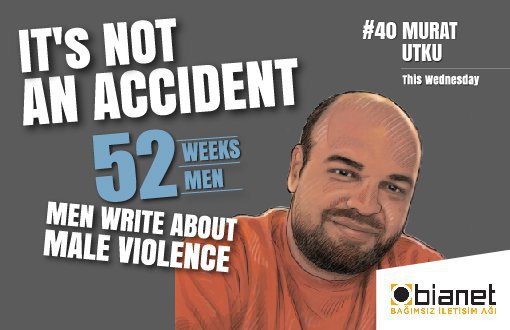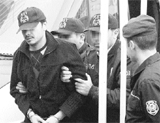Children begin to ride on sleighs here before winter is felt anywhere else in the country. When we turn right from the town center, the narrow and icy road leads us to a village some 17 kilometers away: Doganli.
A village guard holding a kalashnikov and wearing a traditional hat greets us. The people of nearby villages, and the village guards, who are forced to live here, call this place "Doganli camp."
Since these houses were built here for people to take shelter permanently in disaster situations, nobody calls this place a village. The village's headman Musa Alkan, who invited us to his house, told us the story of this place.
"We had to evacuate our Uzundere village of the Cukurca district of Hakkari in 1995," said the headman. "All the 6,500 villagers, most of whom were village guards, had to migrate."
Uzundere, Canakli, Yeni Doganli...
The migration began at the Uzundere village and continued in a never-ending way until today. The first stop of village guards was the Canakli village of Cukurca.
After an obligatory and short stay here for security reasons, Kemal Celik, the Hakkari governor at the time, sent the village guards to another village.
This was a village of the province of Hakkari and was called "Yeni Doganli."
YIBO stop
Let's find out the rest of the story from Rojbin Tugan, who is a lawyer in Hakkari:
"When the village guards and their families were first brought to Hakkari from Uzundere, they had to stay in the trucks that carried them here for two days. Then some settled in houses here. Most stayed in tents for a long time."
"But when the winter hit, the officials remembered that landslides and avalanches are frequent in this region. They took the village guards and their families to a nearby boarding school in Cukurca, called YIBO."
"Six months of snow and no windows"
But the migration story didn't end there... Some of the people from Uzundere migrated to the province of Van and its surroundings. The rest of the Uzundere villagers continued to travel.
The "Doganli camp" was a project of "disaster homes." The groundwork had been completed but the buildings were left unfinished. In 2002, officials decided that the village guards from Uzundere could settle here.
There was no house there. The governor's office sent in some bricks and some material to build roofs. Construction began. The houses were half-completed. Households with at least one village guard in the family gradually built their houses with 340 million Turkish liras (USD 245) of monthly salary.
But headman Musa Kalkan said family members in 25 households didn't accept to serve as village guards and so have no income at all. A total of 2,150 people live in this 250-house village, according to Kalkan.
Life is really difficult for those, who had land and animals in their Cukurca village, and who now rejected to serve as village guards. Families, including small children, have to live in this village, which is under snow for six months and some houses don't even have windows.
Water comes from another village 300 meters away
Since the village was initially planned as a temporary residence, there is neither land in the surroundings for cultivation nor grazing land for animals. The land right next to the houses belongs to the three other surrounding villages.
The most important problem probably, is the fact that there is no water in this village. Villagers are only able to pump some water out in spring.
At other times, it is the women's responsibility to find water. They have to travel at least a couple of times a day to the "well of the other village" 300 meters away and get water.
But the residents of the other village, who are disturbed that village guards have settled right next to them, and who are the owners of the water, got a court order to stop the women from getting water from their well. The promise by the officials to bring water to the village has been evaporated in the summer sun.
The water tank built in the back has been serving as a majestic decoration for a year.
School only up to fifth grade
According to lawyer Rojbin Tugan, these problems arise because there are no village guards in the surrounding villages. But above all this, the village guards are worried that the temporary village guard system may be abandoned during Turkey's membership negotiations with the European Union.
If that happens, their only option would be to return to their village, but this option does not seem to be a possible one at the moment. The people, who have gotten used to forced migration, have certain conditions for returning to their evacuated villages.
"We will go back if our roads are built and we are provided with water, electricity and telephone," say the villagers. "We want back our animals and land." They also talk about the school problem.
Children of the Doganli village go to a two-classroom school and receive education only up to fifth grade. After fifth grade, children can only receive education if they travel to the schools in Yuksekova.
Uzundere has become an "utopia"
They speak of the real problem a little later. Three years after the villagers left Uzundere, which was a municipal town, its status was canceled and thus the town was dissolved.
"The region has been erased from even maps," said lawyer Tugan. "There's no place called Uzundere in Cukurca anymore."
So if they agree to return, the villagers would be returning to an "utopia" or literally, a "non-existent place."
The village guards, who have created huge problems for villagers in the past, are now themselves cornered by problems in eastern and southeastern Anatolia.
The realities of the village guard system...
The southeastern Anatolian region has become a summary of the parameters that determined Turkey's human rights record in the last 20 years.
Nowadays, especially European Union officials who want to take a look at the situation in the region make statements about the developments. What lingers in the visitors' memory is in fact an indicator of why Turkey has failed in improving its human rights record for all these years:
Clashes that took the lives of 30,000 people, villages that were burned down, villagers that were forced to evacuate their homes, guns that were never silent, violence... And the "temporary village guard system," established during the clashes, turned out to be a major obstacle to Turkey in improving its human rights record.
Historic facts
The system was launched in 1985. Problems began as soon as the system was launched following the adoption of law no: 3,175, which was based on article 74 of Village Law No: 442. The village guard system was aimed at "helping security forces in regions under martial law and to help villagers protect themselves."
The village guard system was launched in 22 provinces that year. As of 1993, it was extended to a total of 35 provinces with the introduction of the "voluntary village guard" system.
230 trillion Turkish liras per year for village guards
Latest statistics show that there are 89,293 village guards in Turkey. 58,993 of them are temporary village guards and 30,300 are voluntary village guards.
Each get a monthly salary of 340 million Turkish liras. The annual cost of keeping the system running adds up to be about 230 trillion Turkish liras (USD 170 million).
The village guard system became difficult and complicated
By late 90s, with reduced armed clashes in the region, the necessity of the village guard system began to be questioned.
The village guards could not change their habit of earning money by using their guns. Instead of going back to agriculture or farming, they began committing crimes. The number of incidents increased in a short time.
Interior Minister Abdulkadir Aksu has recently listed the crimes committed by the village guards in parliament:
* Wrongful seizure and robbery, murder, causing injury, clashing with municipal police, mass rape of municipal police, armed assault on residences and vehicles,
* Kidnapping, usage of explosives, setting houses and land on fire, aiding and abetting terrorists, drug smuggling, arms and ammunition smuggling, cigarette and alcohol smuggling,
* Animal smuggling, smuggling historic pieces, rape, armed clashes, kidnapping women, carrying guns without authorization, fraud, violation of security, stealing animals and vehicles.
This frightening list shows how the village guards, who were employed to maintain security, forgot about their responsibilities.
Yildirim: To become consumers from being producers
On January 23, 2002, Salih Yildirim, who was a Sirnak lawmaker from the Motherland Party at the time, had prepared a report about village guards and attempted to study the situation.
In his report, Yildirim wrote the following:
"Today, these village guards have massive problems. These people were working in agriculture or doing farming in their own villages, and thus were producers. Unfortunately, in time, they turned village guarding into a way of life and formed a class of consumers."
"After order was maintained in the region, they had difficulty going back to their old lives."
The problems of the southeastern part of Turkey has spread out the village guards as well.. It is obvious that these village guards, who now only know how to use guns, need a long rehabilitation period to go back to agriculture and farming and to use tractors and hoes.
Doganli villagers who replaced four villages in nine years, are a striking as a projection of this reality. (MU/BA/EA/YE)









